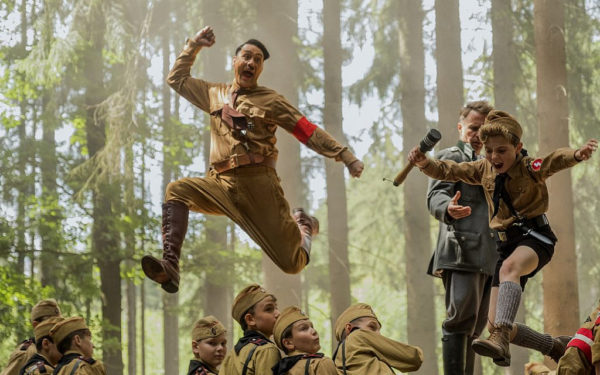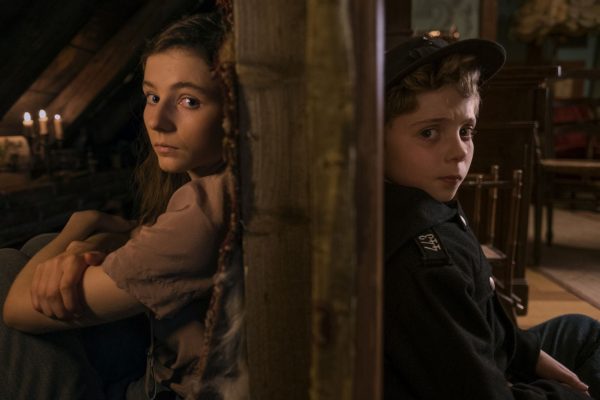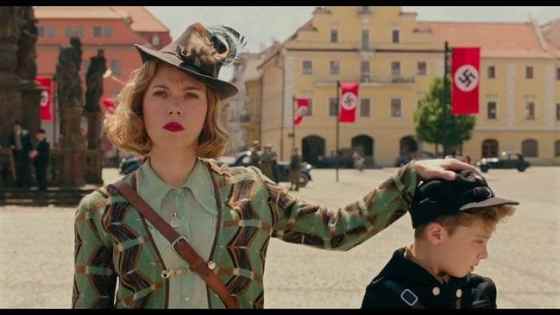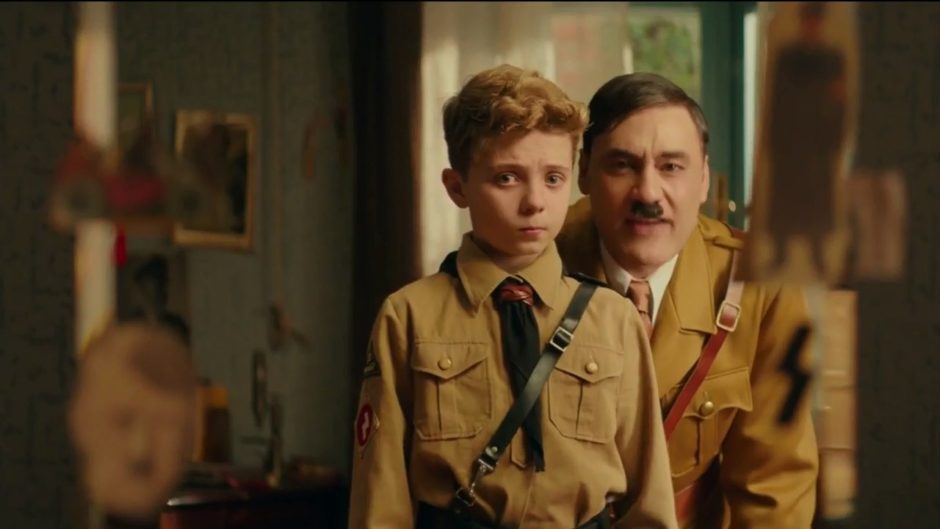Far from being original, Jojo Rabbit, which won this year’s Academy Award for best adapted screenplay, is the latest film in the past seven decades to poke fun at Adolf Hitler and the Third Reich.
Lest it be forgotten, Nazi Germany was satirized by Charlie Chaplin in The Great Dictator, Ernst Lubitsch in To Be Or Not To Be, Mel Brooks in The Producers and Quentin Tarantino in Inglorious Basterds.
Drawing on Christine Leunens’s novel for inspiration, Taika Waititi has made a movie that leaves Hitler and Nazism in the dustbin of history, where they rightfully belong.
JoJo Rabbit unfolds in a small town in Germany in the waning weeks of World War II. Johannes (Jojo) Betzler (Roman Griffin Davis), the central character, is a 10 year-old Nazi fanatic who has been accepted into the ranks of the Hitler Youth organization. As he declares his undying loyalty to Hitler, black-and-white vintage footage of fanatical German youths proclaiming their adoration of the new Germany appears on the screen in a jolting reminder that National Socialism seduced a nation.

JoJo, marvellously played by Davis, is sent to a Nazi training camp for further brainwashing. There he witnesses a ritualistic book-burning ceremony, a nod to the so-called superiority of German Aryan civilization. When he’s asked to kill a rabbit as a sign of his courage and fortitude, he balks, prompting a commander to condemn him as a coward.
An imaginary friend, Hitler, suddenly appears to lift his spirits. Hitler, portrayed in buffoonish hues by Waititi, makes several more appearances before the film ends. Jojo leans on him for moral support because his father, a soldier, is away at war.

When Jojo discovers that a 17-year-old Jewish girl, Elsa (Thomasin McKenzie), is hiding in a secret room of his parents’ house, he sternly advises her to leave. He relents in exchange for information about herself and Jews. Jojo needs to know this because he’s compiling an inflammatory illustrated journal about Jews. In his notebook, Jews conform to outlandish Nazi stereotypes. Some, for example, have horns. Jojo’s ignorance and malice are hardly surprising in a country where Jews are maligned and persecuted.
Jojo’s mother, Rosie (Scarlett Johansson), who hid Elsa, is no Nazi. She thinks Nazi Germany’s days are numbered, believes the war is “stupid” and rejoices in its imminent collapse. But anti-Nazi Germans like Rosie are vulnerable. During a walk, she and Jojo pass gallows from which “traitors” hang lifelessly.

As Jojo learns more about Elsa, a young woman who does not appear to be Jewish, he grows increasingly fond of her. Elsa, in turn, gives Jojo a backhanded compliment by saying he’s only pretending to be a Nazi. In a test of his real feelings, Jojo remains conspicuously silent when five members of the dreaded Gestapo barge into his house and question Elsa. Waititi greatly enjoys mocking their repeated “Heil Hitler” salutations.
Jojo loses all his faith in the Nazi movement after his town is besieged by Allied armies. “It’s not a good time to be a Nazi,” says his precocious friend, Yorki (Archie Yates), in a sardonic and piercingly accurate appraisal of the situation
Hitler, in one final cameo, chides Jojo for his friendship with Elsa, but by this point Jojo is thoroughly disillusioned with the dictator. How could it be otherwise? Jojo Rabbit, a credible spoof of Nazi Germany, makes that abundantly clear.
